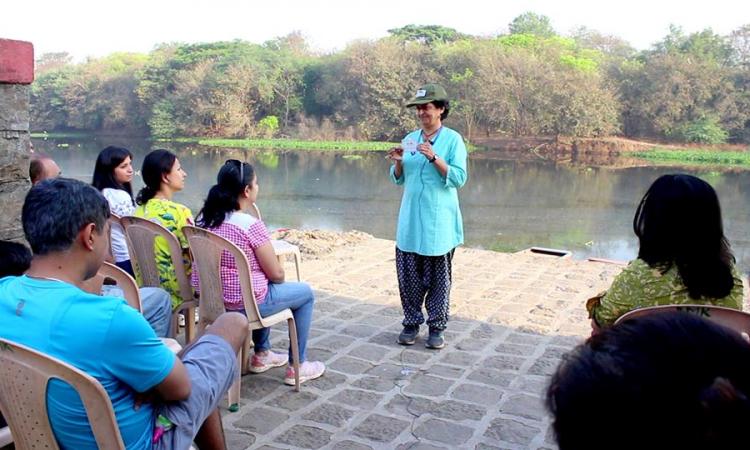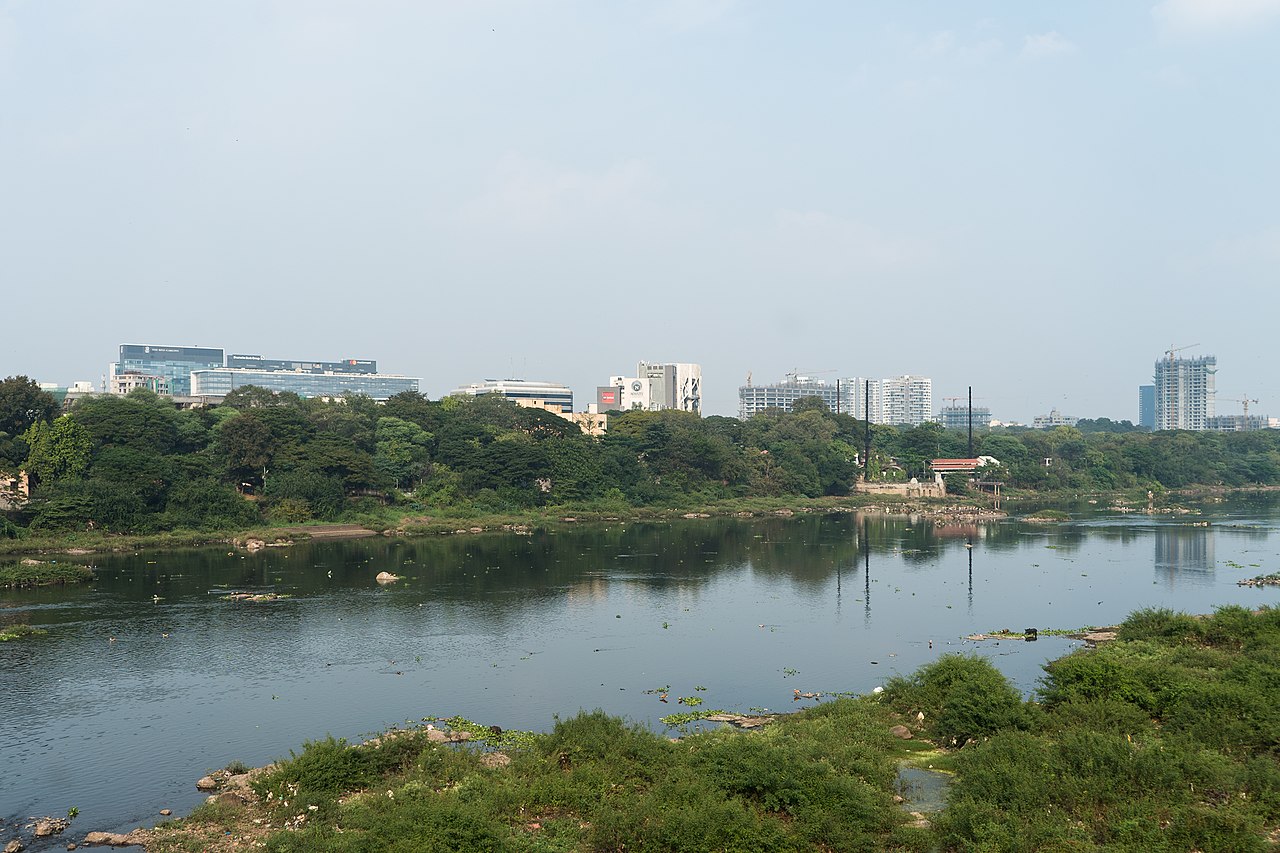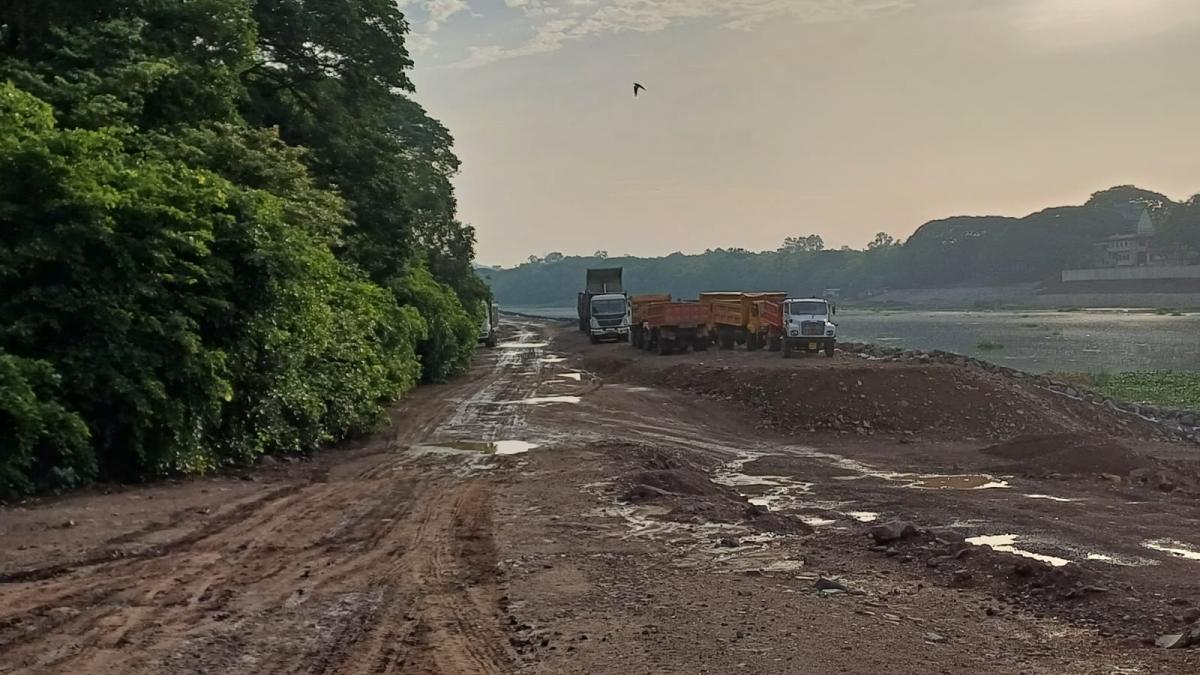
Shailaja Deshpande, Founder, Director Jeevitnadi has been a strong voice leading the citizen movement in Pune city and raising awareness of the masses to the plight of the river Mula Mutha, addressing threats posed to the river due to release of untreated sewage in the river and aggressive projects such as the River Front development.

Her vision is clear, to push forward for the demand to legalise the right of the river to flow, unbound, clean, bubbling with life. The pressure has gradually built and forced administrators and experts alike to look up and take notice of the issues raised by citizens about their river.
The passion to study and understand rivers goes back to her childhood days that she spent near the banks of the Krishna river and her training in her later stages in ecology, a course that she completed with Ecological Society in Pune. The lack of attention in urban areas to the plight of the river both by citizens who depended on her and the administrators alike, deeply moved Shailajatai.
She says, “Issues around the river are complex and multidimensional. A single organisation cannot help. What is important is for common people to connect with the river. We started with that aim and decided to become the means to facilitate their connection with the river and trigger a dialogue around the river. We based our dialogue on a strong ecological, historical and scientific basis and this also helped experts, scientists, administrators, activists, environmentalists, journalists to join the effort – as responsible and caring citizens ready to help the river and advocating to bring about a change in the state of the river”.
“I am so glad that the effort is showing results. Citizens engagement and dialogue is increasing, we were able to convince the Pune Municipal Corporation (PMC) to relook and reevaluate their plan, we created and won an NGT case and for a first time in Pune – A river Management and Rejuvenation Committee was formed chaired by the Divisional Commissioner with the Maharashtra Pollution Control Board (MPCB) acting as nodal agency".

"The National Green Tribunal (NGT) gave the order for restoring the flows of the river, reducing bank erosion, stabilising banks and for the restoration and protection of riparian zone and the wetland. They also asked for a cumulative impact assessment, removal of encroachments in the flood zone and for increasing carrying capacity of the river. Both Urban Local Bodies (ULB’s) were asked to stop polluting the river as well as to alter and modify the existing Sewage Treatment Plants (STPs) as per the Central Pollution and Control Board (CPCB) norms which are a direct threat to biodiversity and river quality".
"We are now planning ecological restoration in small stretches of the river so that we can actually demonstrate how a river can be restored in its natural pristine form by conserving the existing riparian zone, protecting the wetlands so that the community can also enjoy the river” she informs.
Read these articles to know about the work of Jeevitnadi, the state of the Mula Mutha river, The River Front Development project and what citizens, environmentalists, scientists and experts are saying about it.
- Breathing life into the dying rivers of Pune
- Preserve the ecological integrity of rivers: A statement on riverfront development in Pune
- Pune's river rejuvenation project, a question of social justice
- Damned by pollution, doomed by beautification
- The Muthai river walk
- The slow death of a river
- Water fleas see red as river Mula Mutha chokes
- Urban water bodies, treasure troves of biodiversity
- Taking people along, to conserve freshwater ecosystems
/articles/water-warrior-vision